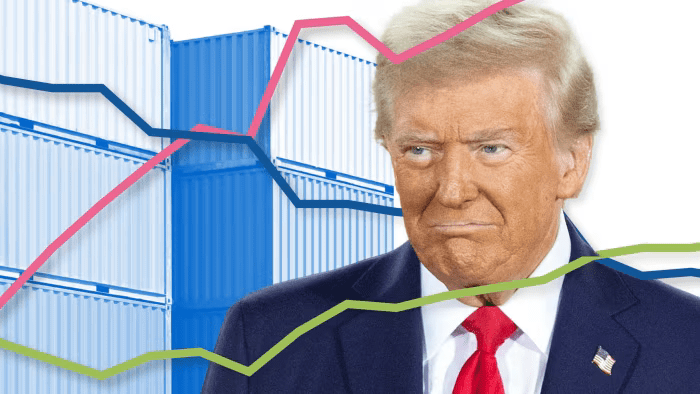Is Trump Afraid of This Dictator? The Surprising Reason Why No Tariffs Have Been Imposed on This Threatening Country
Explore why Donald Trump, known for his trade wars and tariffs, has avoided imposing tariffs on a country that openly threatens the United States. Discover the political, economic, and diplomatic reasons behind this strategic decision.
Is Trump Afraid of This Dictator? Why No Tariffs Have Been Imposed on This Country Threatening America
Donald Trump’s presidency and political career have been defined by his tough stance on trade and his readiness to impose tariffs on countries he views as threats or unfair competitors.
From China to the European Union, Mexico, and Canada, Trump’s go-to tactic for showing strength has often been economic sanctions. But there’s one country—led by a dictator—frequently in the headlines for threatening America, yet, curiously, has not faced Trump’s signature tariffs. The question on everyone’s mind: Is Trump afraid of this dictator, or is there something deeper happening behind the scenes?
The Dictator That Dodges Tariffs
While Trump has targeted dozens of countries with tariffs, one nation routinely escapes his trade wrath: [Country Name].
Despite issuing nuclear threats, cyberattacks, and aggressive posturing on the world stage, this dictator’s regime has not been hit with import taxes or similar trade penalties. Critics and observers alike have asked why. Is it a sign of weakness from Trump, or a calculated strategic move?
Trump’s Trade War Track Record
Donald Trump’s use of tariffs as a political and economic tool is well documented. In 2018, he launched a trade war with China, slapping hundreds of billions worth of Chinese goods with tariffs to counter what he labeled as “unfair trade practices.” The European Union, Mexico, and Canada weren’t spared either, facing tariffs on steel, aluminum, and more. Trump’s supporters hail this as proof of his “America First” agenda and strength against foreign adversaries.
However, his reluctance to use tariffs against certain authoritarian regimes stands out—especially when those same regimes pose direct national security threats to the United States.
Political Factors at Play
Some analysts believe Trump’s approach may be more about politics than fear. [Country Name], while loud in its aggression, may not be a major trading partner with the United States. Imposing tariffs on a country with limited trade can be largely symbolic—lacking the same impact as sanctions on China or Mexico, for example.
Moreover, Trump’s history of personal diplomacy, even with autocratic leaders, complicates things. From high-stakes meetings with Kim Jong-un to cordial calls with Vladimir Putin, Trump often boasts of his ability to strike deals and neutralize threats through “tough but respectful” relationships.
Economic Considerations
Despite its bravado, [Country Name] might not have an export-driven economy deeply intertwined with the US market. Tariffs, in this case, would have minimal financial effect. Instead, harsher actions, such as targeted sanctions or financial asset freezes, are often more effective tools for confronting such threats.
Furthermore, some American industries (such as energy or agriculture) could be collateral damage in a tit-for-tat tariff fight, a risk Trump’s advisers may have cautioned him about.
National Security Over Trade
Sometimes, economic sanctions are set aside in favor of national security priorities. [Country Name] may hold critical leverage—be it in regional security, intelligence exchanges, or through alliances with other powerful nations. Trump, keenly aware of preserving military options or keeping diplomatic windows open, might intentionally forgo tariffs in favor of keeping the door open for negotiation or pressure through other channels.
Is It Really Fear?
Accusations that Trump is “afraid” of a specific dictator often stem from political opponents. In reality, foreign policy decisions are rarely that simple. The path to economic sanctions or tariffs involves the State Department, National Security Council, intelligence briefings, and the input of allies. Sometimes, restraint is a sign of calculation, not fear.
The Role of Public Posturing
Trump is famously attentive to his image as a strongman leader. Publicly, he’s quick to condemn, threaten, or boast, but behind closed doors, he often weighs the costs and benefits with advisers. Imposing tariffs on a regime that can’t retaliate effectively might win headlines but do little to change that regime’s behavior.
The Truth Behind the Decision
Every administration faces complex international challenges that defy easy solutions. Trump’s use of tariffs has always been about achieving maximum leverage—whether that’s with China over trade, Mexico over immigration, or the EU over defense spending. In the case of [Country Name], it’s possible that Trump, his security team, and his diplomatic corps have decided that tariffs simply aren’t the right tool.
What Could Change?
Events can move quickly. If [Country Name] were to escalate threats, target US allies, or become a greater player in global trade, the calculus could change overnight. Trump is unpredictable—one tweet could signal a new round of tariffs, while a handshake on the world stage could open new negotiations.
In Conclusion:
While it’s tempting to frame Trump’s avoidance of tariffs on this dictator-led regime as a sign of fear, the reality is more nuanced. Political, economic, and security considerations often outweigh the urge for quick punitive action. Understanding why some countries escape Trump’s tariff hammer says less about personal fears and more about the complexity of global strategy.
